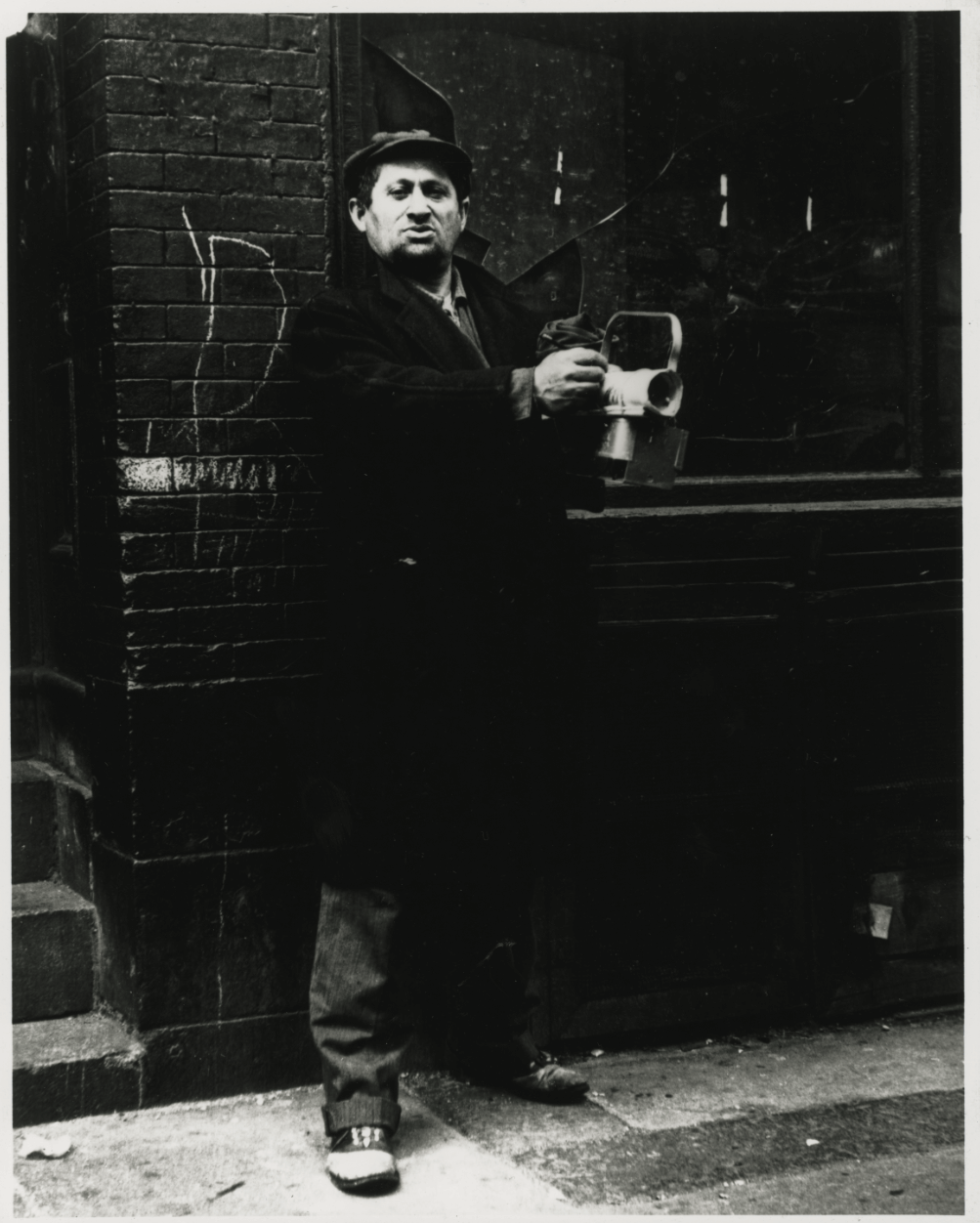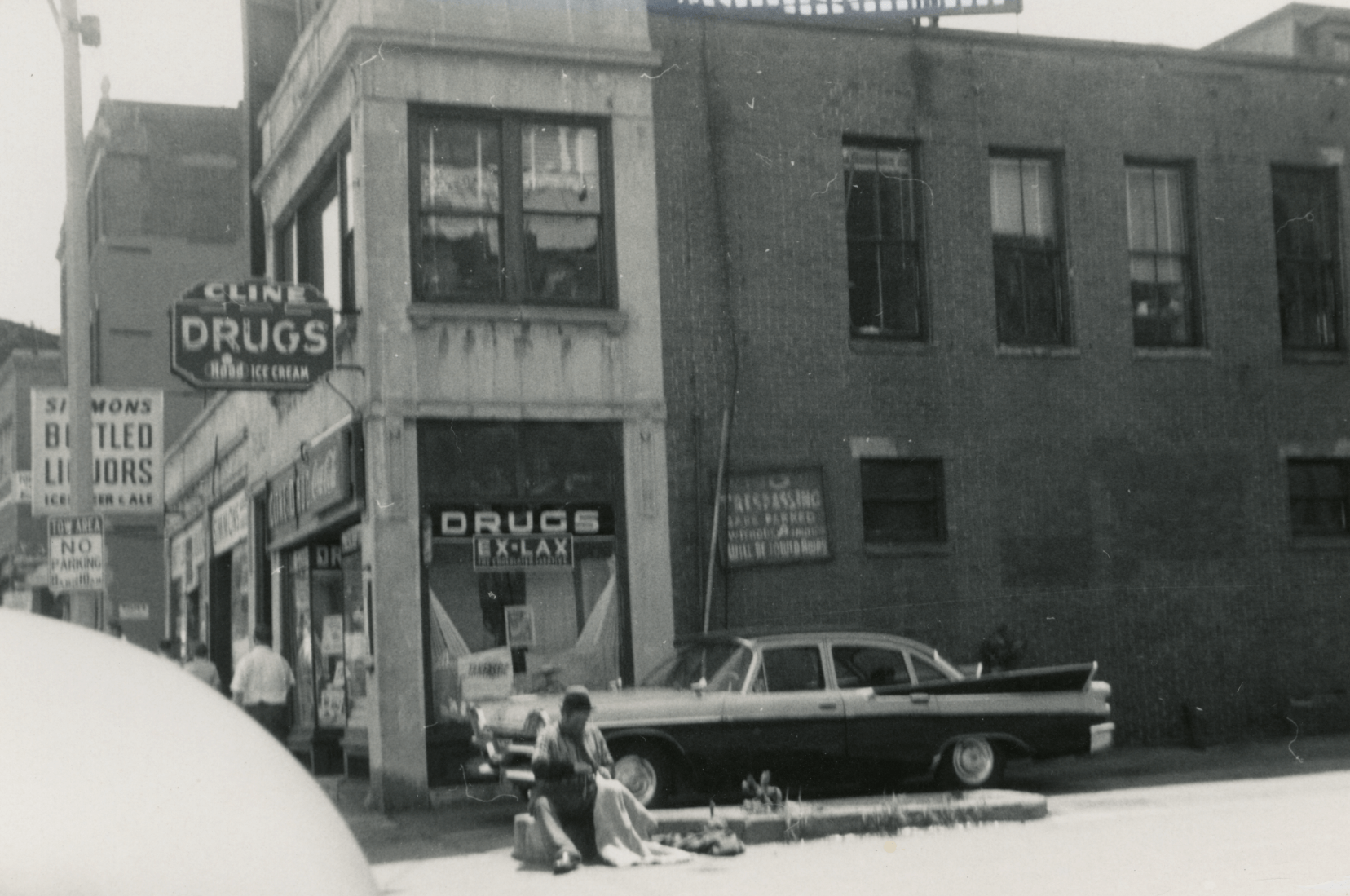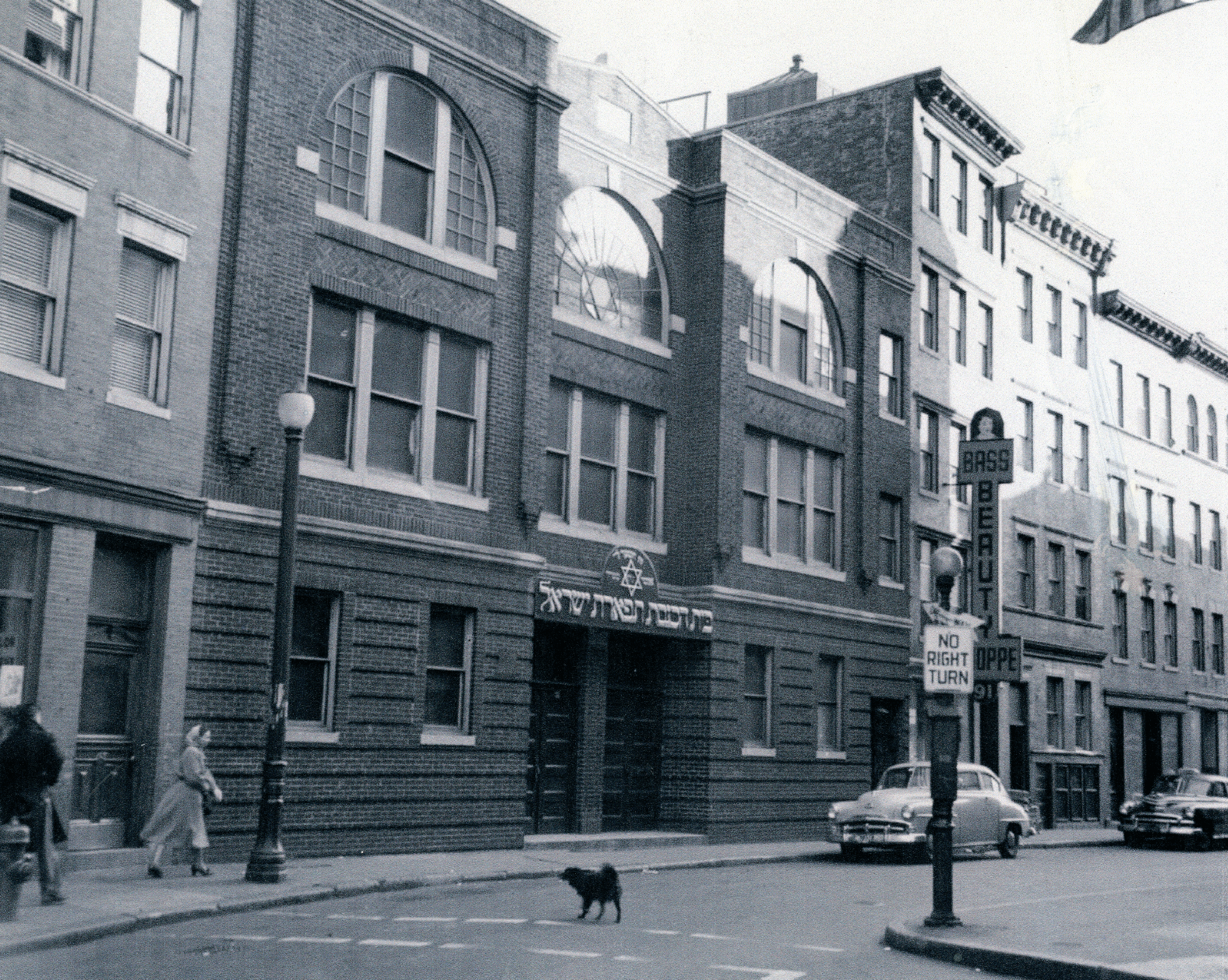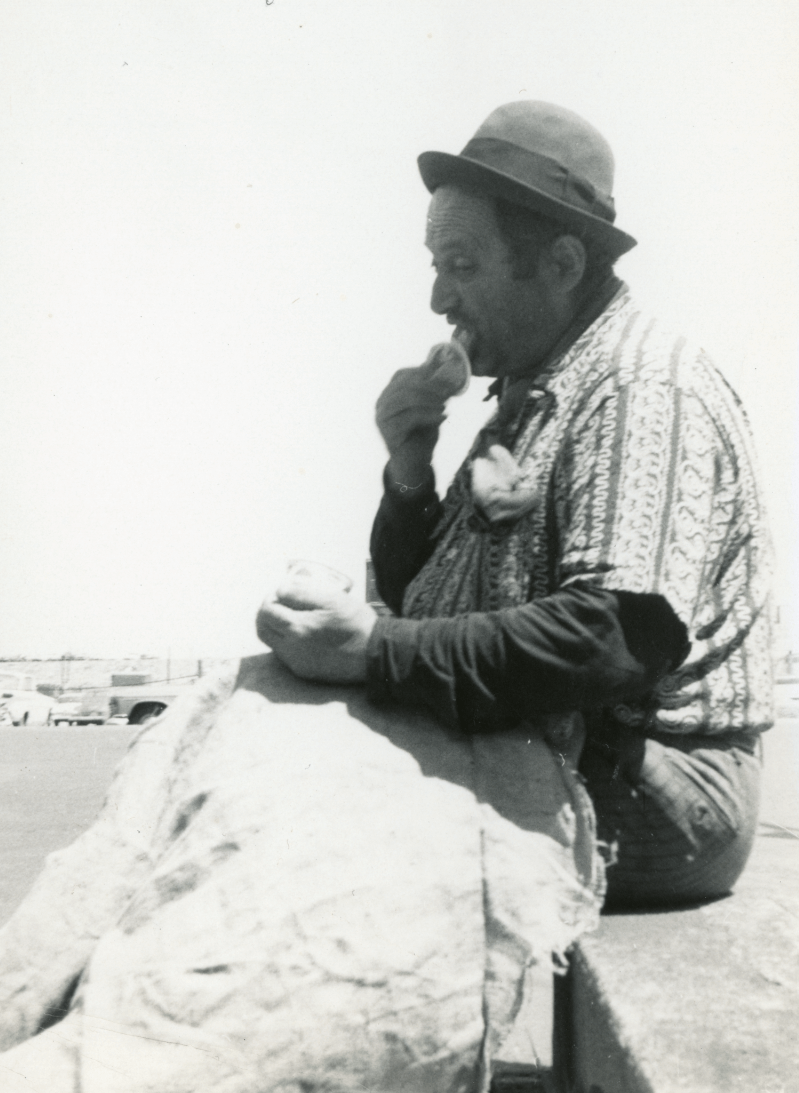The Legend of Abraham 'Al' Tabachnik: A Voice That Echoed Through the West End's Streets
Abraham “Al” Tabachnik (sometimes spelled Tabachnick, Tabatchnik, or Tabarchnik) was a Russian immigrant, known both for his eccentricities and powerful voice. From the early 1920s to the early 1960s, he roamed the West End’s streets, filling them with music. Recollections of Tabachnik, found throughout West End oral histories and the West Ender Newsletter, illustrate the impact of the West End’s tight-knit community on him, and his impact on the community.
Russian immigrant Abraham “Al” Tabachnik walked the streets of Boston’s West End with a rope for a belt and a violin tucked under his chin, his powerful tenor voice transforming ordinary street corners into impromptu concert halls. To some, he appeared to be just another homeless man, but to those who truly knew him, he was a neighborhood legend whose story embodied the spirit of this vibrant, multicultural community.
In the mid-1930s, Tabachnik cut an imposing figure: nearly six feet tall, built like a weightlifter, and strong as an ox. He carried himself with unmistakable pride despite his unconventional appearance – unshaven, with cast-off clothing and torn shoes. A paper bag slung over his shoulder like a knapsack contained his worldly possessions, including precious musical manuscripts he would study while sitting on curbs.
What many didn’t realize was that Tabachnik wasn’t homeless in the conventional sense. As Israel Katz recalled, from the early 1920s, property owners on Chambers, Poplar, Auburn, and Brighton Streets would provide him with temporary shelter in empty stores, as long as they had basic amenities. This arrangement reflected the West End’s unique character – a place where immigrant communities from different backgrounds looked after their own and each other.
Tabachnik’s education and talents were as remarkable as his eccentricities. He was reportedly well-educated and multilingual, speaking English, Yiddish, Hebrew, Russian, Polish, Italian, French, and German fluently. Some believed he came from a wealthy family and had studied for the concert stage. His musical genius was undeniable – he could read and compose music, often working on manuscripts while sitting on street curbs.
But it was his voice that truly set him apart. Leonard Nimoy, the famous actor and West End native, remembered Tabachnik’s singing as “glorious” – like an operatic tenor who “could sing like a bird.” This talent found its most profound expression during the Jewish High Holidays, when smaller synagogues would hire him as a cantor. Frank Lavine described the transformation: the man who one day might be fishing through barrels would enter the synagogue in splendid white robes, wearing a gold-embroidered hat and prayer shawl, striding down the aisle like a king to sing with “the voice of an angel.”
Nimoy, in a 2013 interview, reported: “There was a very small synagogue on Beacon Hill called the Joy Street Shul. It had a small congregation with not much money, but they would hire Tabachnik to sing for the High Holidays. His voice was glorious, and he knew the material well. He was a brilliant student, and I think he may have even studied for the rabbinate, though I’m not sure… Whenever we heard that Tabachnik was singing for the High Holidays, we’d sneak into the Joy Street Shul just to hear him.”
Israel Katz similarly recalled that, in the 1920s, Tabachnik would often come to his building on West Cedar Street. In return for a meal, he would perform a concert. West End neighbors would flock to the building to hear him sing old Yiddish, Russian, and Polish songs.
The West End’s inclusive spirit was perhaps best demonstrated by how the community supported Tabachnik. A successful liquor store owner provided him with weekly stipends of about $10 for his basic needs. During the High Holidays, when Tabachnik earned $500 for his services as a cantor, he would faithfully repay his debt. Moreover, the Causeway Cafeteria honored a weekly tab left to him in the will of a wealthy West Ender.
Tabachnik’s story is also one of mental health struggles in an era when such challenges were poorly understood. Having been in and out of mental institutions, he was sometimes pointed to as a cautionary tale of someone who “went crazy because he read too much.” Modern observers might recognize symptoms of manic-depression in his behavior – moments of lucid brilliance alternating with periods of distress.
The neighborhood children’s relationship with Tabachnik captured the complex dynamics of his life. They would follow him as he sang, sometimes taunting him, other times simply enjoying his performances. Eileen Marotta’s uncle recalled late-night conversations with Tabachnik on synagogue steps, marveling at how calm, intelligent, and interesting he was during these quiet moments – a sharp contrast to his daytime persona, chasing those who provoked him.
The demolition of Boston’s West End in the late 1950s and early 1960s scattered its tight-knit community to the winds, and with it, the footprints of characters like Tabachnik. His story remains as a testament to a unique time and place, where an eccentric personality could find not just tolerance, but acceptance and support. In the West End, Tabachnik wasn’t just a “street person” – he was, as Josephine Martyniak Mulvihill wrote, “a bit of a West End celebrity” who did it “My Way.”
Article by Amir Tadmor, edited by Grace Clipson.
Sources: Israel Katz, “Reflections,”Letter to The West Ender Editor, Nov. 15, 1992 (WEM Archives); Frank Lavine, “Thoughts about Al Tabarchnik,” The West Ender, Vol. 8, No. 4 (October 1992); Eileen Marotta (Hartnett), A Letter to The West Ender Editor, July 24, 2009 (WEM Archives); Josephine Martyniak Mulvihill, “Al Tabachnik,” The West Ender, Vol. 25, No. 2 (June 2009); Josephine Martyniak Mulvihill, “The West End,” The West Ender (December 1994); Tony Oddo, “Tabarchnic,” The West Ender, Vol. 8, No. 4 (October 1992); Herb Shifres, “I remember… the Old Neighborhood,” The West Ender, Vol. 22, No. 3 (September 2006); John W. Vatalaro, ““Hot and Cold West End Memories,” The West Ender (June 2001); The West End Video Newsletter, “Camp Gannet and Al Tabachnik”; The West End Video Newsletter, “In the Memory House by Author Howard Mansfield,” 1993; Yiddish Book Center, “Tabatchnik: Leonard Nimoy Remembers A Local Legend From His Childhood in the West End,” October 15, 2013.











